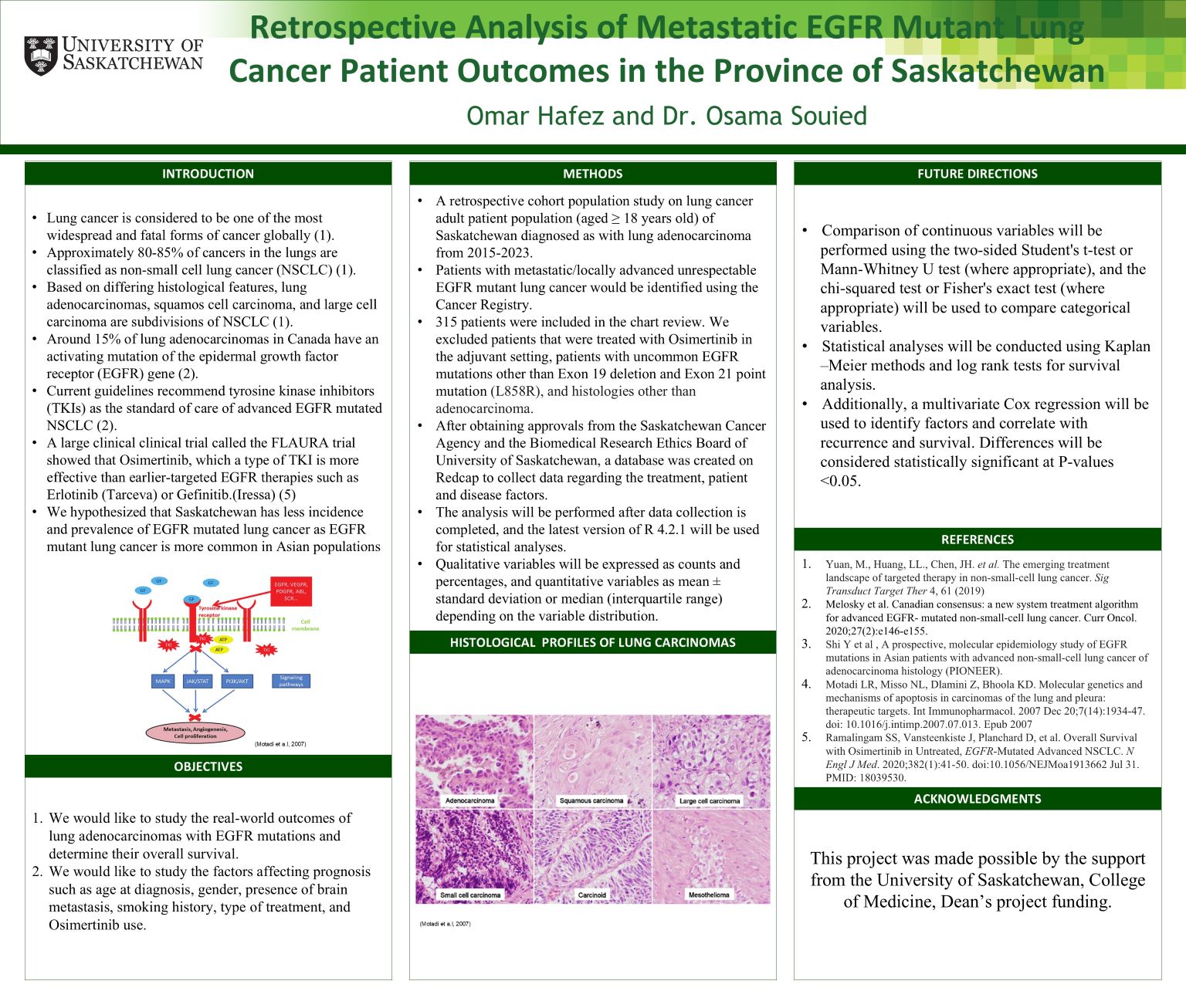
Retrospective Analysis of Metastatic EGFR Mutant Lung Cancer Patient Outcomes in the Province of Saskatchewan
Omar Hafez
Lung cancers continue to be one of the most prevailing and deadly forms of cancer worldwide. This retrospective study intends to investigate the outcomes of lung adenocarcinoma patients in the province of Saskatchewan, with a focus on epidermal growth factor receptor (EGFR) mutated lung adenocarcinomas, specifically within the population of Canada from 2015 to 2023.
Our objective is to study real-world outcomes of lung adenocarcinomas with EGFR mutations and determine their overall survival. Furthermore, different factors affecting prognosis such as age at diagnosis, presence of brain metastasis, smoking history, type of treatment, and Osimertinib use were reviewed. We hypothesize that Saskatchewan has less incidence and prevalence of EGFR mutated lung cancer as EGFR mutant lung cancer is more common in Asian populations.
315 patient charts were reviewed in the study, excluding patients treated with Osimertinib as an adjuvant therapy or patients with abnormal EGFR modifications outside Exon 21 point mutations (L858R) or Exon 19 deletions. The statistical analysis includes chi-squared tests, Cox regression, and Kaplan-Meier methods to evaluate the correlations between the overall survival of the patient and treatment variables. The findings from the investigation will yield a valuable understanding of the clinical course of EGFR mutant NSCLS in Saskatchewan.
